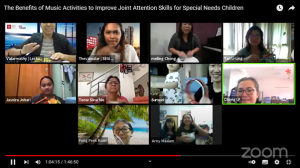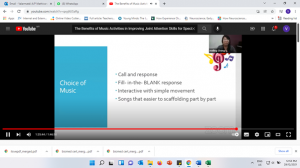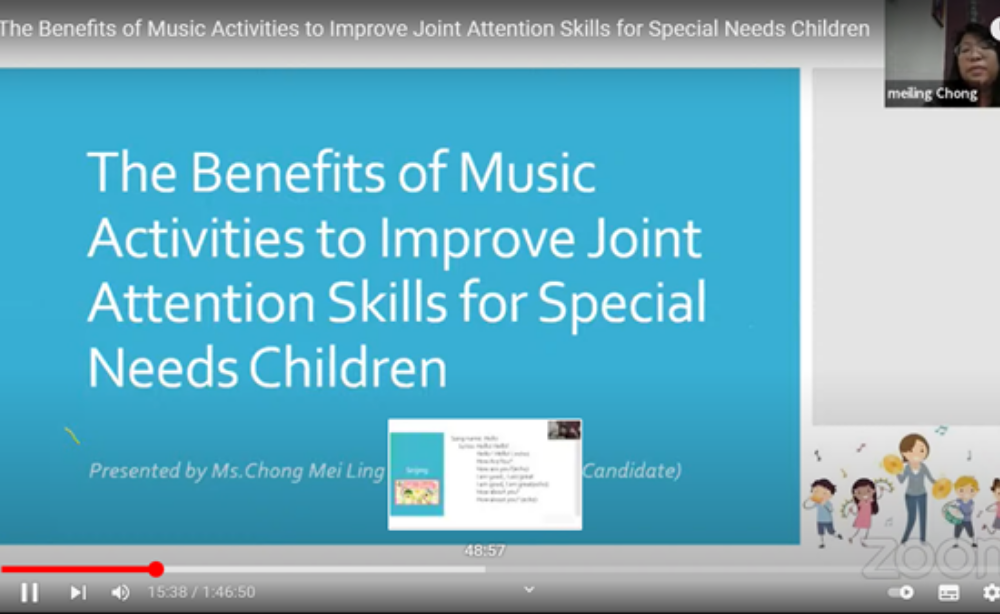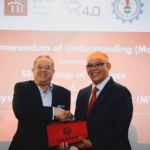Joint attention is a set of skills that involves alternating attention between an individual and an object or event. In typically developing children, these skills first present themselves around six months of age and continue to develop throughout the first two years of life. Deficits in joint attention are some of the defining characteristics of children with autism spectrum disorder (ASD) and have been considered by many experts as one of the most reliable early diagnostic indicators of the disorder.
Autism spectrum is a neurodevelopmental disorder that affects the development and functioning of a child throughout his or her life. People on the autism spectrum are characterised by two primary diagnostic criteria: deficits in social communication and interaction, and restricted and repetitive behaviour patterns.
According to the American Music Therapy Association (AMTA) (2015), “the engaging nature and accessibility of music often elicits positive responses of individuals with ASD.” As most people on the spectrum respond so well to musical stimuli, music interventions have increasingly been used as a treatment method to improve upon skills relevant to the child’s development and everyday life.
In the continuous effort to create awareness on the importance of expressing oneself through arts and the restorative benefits of arts in its own, the Expressive Arts exhibition team, this round focused on the therapeutic effects of music, particularly on special-needs children. A lecturer and PhD candidate, Ms Mai Ling, was invited to host the 4th webinar of Expressive Arts Exhibition. Ms Mai Ling works with autistic children and focuses her research on joint attention interventions through music for autistic children. The webinar was carried out on Zoom and streamed live on YouTube. The hour-and-a-half session was moderated by Ms Valarmathy, lecturer and programme leader from SEGi’s School of Psychology.
A total of sixty-five participants from different age groups took part in this virtual webinar. Ms Mei Ling shared her experience using music to improve attention and communication skills with children with autism. She explained from a neuroscience perspective that music can improve someone’s attention and learning. She also made her session interesting and engaging by playing some musical instruments, and encouraged the participants to use daily tools such as books, pencils and tables to produce sound. The children who participated in the webinar enjoyed the nursery rhymes Ms Mei Ling played.
The webinar ended with a question-and-answer session. A few participants showed interest in music programme for special-needs children. The teachers and parents who joined the session obtained valuable information and tips on improving children’s attention and communication through music. The webinar served as an introductory session on music and its therapeutic effect on children’s joint attention skills. The expressive Arts Exhibition team looks forward to organising more sessions focusing on music with different experts from the field.
Watch a replay of the session by clicking the link >>here<<







